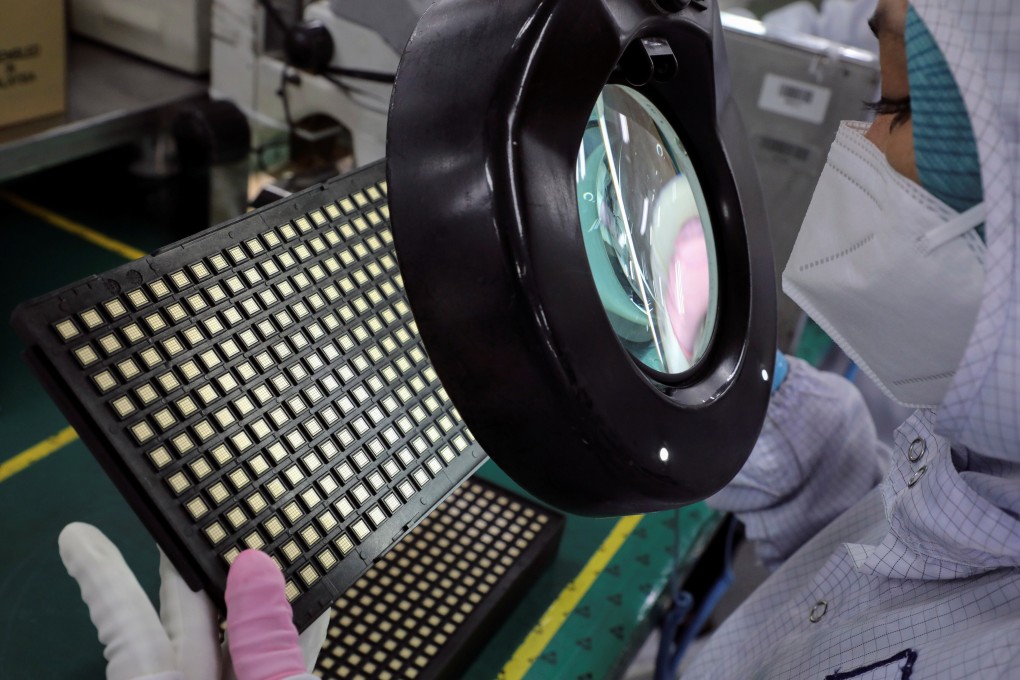China woos Intel, Infineon and others in chip investment push to boost supply chain security
- The meeting showcased Beijing’s efforts in securing supply chain security at a time when the US is pressing semiconductor giants to help America’s chip industry
- The ministry asked companies how the government can improve its services and how Chinese firms in the semiconductor value chain can work with foreign firms

The investment promotion bureau of China’s Ministry of Commerce has held talks with Intel, STMicroelectronics, Infineon Technologies and other firms to discuss setting up a working group to facilitate “cross-border semiconductor investment” in Beijing’s latest move to ensure chip supply chain security.
According to a statement posted on its website on Tuesday, the ministry has asked the foreign companies – which also included Merck, Canon and AGC – how the government can improve its services and how Chinese firms in the semiconductor value chain can work with foreign firms.
Trade group SEMI, which represents companies in global electronics manufacturing and design supply chain, was also present at the meeting held last Friday.
While the event was focused on communicating with stakeholders and did not involve decision making, it showcased Beijing’s efforts in securing supply chain security at a time when the United States is pressing global semiconductor giants to help the American chip industry. The Semiconductors in America Coalition, which includes 65 major players in the semiconductor value chain, was established in May.
Meanwhile, Washington has sanctioned certain Chinese tech companies that it says pose national security risks, denying them access to advanced chips.
The meeting at the commerce ministry on Friday mainly covered topics such as boosting cross-border collaborative capabilities in electronic design automation, intellectual property core development, chip testing and packaging, and production capacity, as well as promoting semiconductor cross-border cooperation in the form of “technology transfers [and] incubation of joint projects”, according to the ministry’s statement.